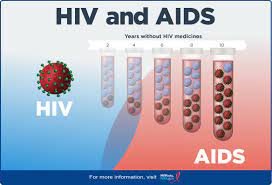A study has revealed that twice-yearly injections of lenacapavir, an antiretroviral drug, could reduce the risk of HIV infection by 96%.
Published in the New England Journal of Medicine, the research shows that this injection regimen outperforms the daily oral PrEP option, Truvada, in preventing HIV among at-risk individuals.
The Phase 3 trial involved 3,265 participants, including cisgender men, transgender individuals, and gender nonbinary participants. Researchers compared the effectiveness of lenacapavir injections to daily oral emtricitabine-tenofovir disoproxil fumarate (F/TDF).
In the group receiving lenacapavir, only two participants contracted HIV, compared to nine in the F/TDF group. This resulted in a 96% reduction in HIV incidence among lenacapavir recipients.
Dr. Moupali Das, Vice President of Clinical Development at Gilead Sciences, noted, “Twice-yearly lenacapavir reduced HIV risk by 96%, providing an innovative and highly effective option for HIV prevention.”
While the study showed promising results, it faced challenges, including a temporary FDA hold on lenacapavir injections, which caused a delay in treatment for some participants. Despite these setbacks, lenacapavir’s long-acting formula remains a potential breakthrough, especially for those struggling with daily pill adherence.
Dr. Charles Flexner of Johns Hopkins University highlighted the importance of accessibility, particularly in low-income countries, where most new HIV infections occur. “The biggest challenge now is ensuring these treatments are available in regions with the highest infection rates,” he said.
With its near-vaccine-like effectiveness, lenacapavir could significantly impact global HIV prevention strategies, particularly in underserved communities.



